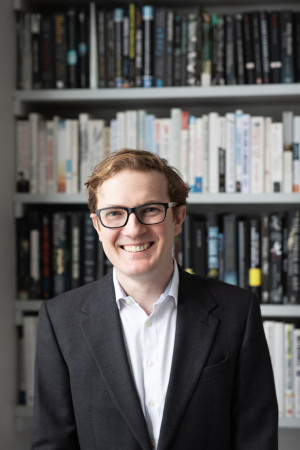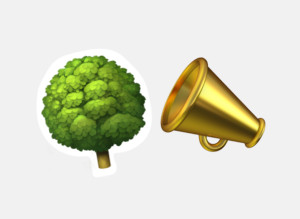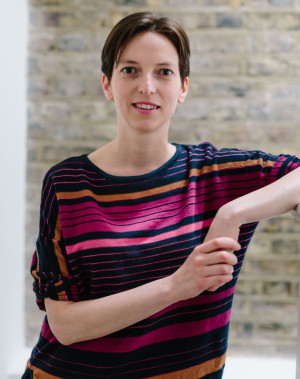In Conversation with Alexandra Deschamps-Sonsino
Equipping individuals with the tools to disrupt the climate conversation

This week we spoke toAlexandra Deschamps-Sonsino, London-based author of ‘Creating a Culture of Innovation’ (Apress 2020), an industrial designer and consultant who has worked with clients across tech, energy, banking and social enterprises. She is also founder of the Low Carbon Design Institute, a residency for creative people focused on climate change.
What advice would you give to people that want to change things for the better?
I think it comes down to really knowing your stuff and understanding the issues. I know this is might be a naff thing to say but read some books! Long form reading, including extremely dry PDFs are incredibly valuable. That is because these are the tools of policy-makers and decision makers. This is how you'll get the meat of what the issues are not just at a surface level through a Guardian article, or a tweet. So please do some deep research into the things that upset or oppress you. I think that's the first place to start and I don't think it happens enough.
Secondly, find your gang. The big question is, how do you find your crowd and a cohort of people around you that make you feel good about what you all want to do?
What are you focused on right now?
The Low Carbon Design Institute is a residency for creative people around climate change and my focus right now. The last three years of my work in this area has really led me to this place. Creative people want to get involved in climate change but their literacy around key issues is low. And so increasing their literacy, giving them the tools to work with new kinds of people, new kinds of industries is sort of what the Institute, and its first virtual residency and cohort is all about.
Are there some particular references that have inspired your thinking in your work as someone aware of the need for change?
I collect books that I think are really interesting and impactful on an Amazon list I’ve shared. Anything by E.F. Schumacher for instance. His writing is still very fresh around issues of everything from land ownership to the role of technology. It’s both concerning and shocking that we have not necessarily moved on from that line of inquiry, but the issues he raised in the 1970s are still issues we face today.
I also like reading more philosophical and cultural critiques of how we live, and recently fell in love with Philip Slater’s ‘The Pursuit of Loneliness: American Culture at the Breaking Point’ and Jenny Odell’s ‘How to do Nothing’, a fantastic book about action, inaction and way we look at big problems like climate change.
What change has impacted your area of practice?
After 20 years of an obsession with Silicon Valley type thinking, we’re thinking more critically about innovation work. We’re starting to frame innovation work in terms of human and non-human impact and that’s interesting to me. It’s led me to take roles building innovation practices inside energy companies or working to give sustainable finance clients a better understanding of certain aspects of how we measure the energy efficiency of the built environment. In the same breath, I was looking back to some work I did as an intern at the Design Council in a 2005 project that was about how people consume information about energy in their home life. You could do that project again today and the outcomes would probably look almost exactly the same. So we definitely have a crisis of ideas.
I’d like to believe we’re re-considering our impact in the West because of the COVID 19 crisis. There's also something about the last 20 years of the massive wealth and billionaires being shown left right and centre via digital platforms that makes people reflect on climate change in a slightly different way. A kind of saudade for the time lost.
Why do you think more significant change has not yet occurred?
The same kinds of people are having the same kinds of conversations. We have happily made the environmental collapse a tertiary concern to our life and therefore the only people who've really continued to care about this throughout the last 20 years have been the same kinds of people. That's sort of why I want the Low Carbon Design Institute to be an example of bringing completely different people to the table. People who don't consider themselves to be experts right now but who are interested, who are curious and who want to upskill.
So I think that's the opportunity - making sure that we have a wider variety of people taking part in this conversation than historically has occurred.
Who do you admire as someone who is making change happen ?
Jack Kelly, founder of Open Climate Fix was at DeepMind but left to start his own company looking at the sky and trying to figure out if better computation of satellite imagery could contribute to better solar prediction and energy distribution. He moved away from a job that he could have stayed in for the rest of his career, making really good money to move to something that is highly innovative, highly speculative and super important computationally.
Do you have an opinion on data vs. action with regard to tackling climate change and related issues?
In Jerry Z. Muller’s The Tyranny of Metrics he makes a strong case that we use metrics to sort of obscure the political, the difficult human base political decisions that have to be made.
For me, the issues around air pollution exemplify this obsession with more data. We keep having these deployments of sensors across London. When we know London is polluted. We know it's 10 times over the EU limit for years and years, but we don't ban diesel vehicles. We don't ban SUVs, and we don't look to electrify public transport asap. More data isn't going to give us the political answers we need.
How can we give permission for companies to produce products that they then have no responsibility to take back or make sure are recycled or designing for disassembly? You know, that's a political decision.
What advice do you have for those involved in change but wanting greater impact?
There has been a tendency for the people who get involved in sharing economy or circular economy projects to not be as aggressive as their capitalist counterparts and I think we need that aggression. We need that aggression in terms of marketing, in the amount of PR that we're given. We need platforms and communication around these issues and solutions that are wide reaching, not only hyperlocal. You know there'll be a nice tidbit at the end of every Today programme, the nice, feel good moment about something that's happening to someone somewhere. I think that circular economy solutions fit that nice moment and nice bit at the end, but they need to make it to the heart and soul of how we think about our lives and our economies.
What advice would you give someone in a leadership role in a large organisation who is wondering what the first significant step is in a climate change agenda?
I think the first step that any organisation of any size should do, and this is really ‘minimum viable’, is to disclose impact. They can do that through the Carbon Disclosure Project, which they pay for and get done yearly. At least this way, they know where to start without having to worry about initial biases impacting their first steps. It’s important for companies and their leaders of feel accountable to the rest of their industry and their peer group, to their own employees. Saying, not only do we care about this at a board level, we care about this deeply. They're making a statement that whilst they might have poor results first time around, they're committed to the next steps to achieve better results year on year. This gives people a sense of collective purpose on these issues and is incredibly important.



